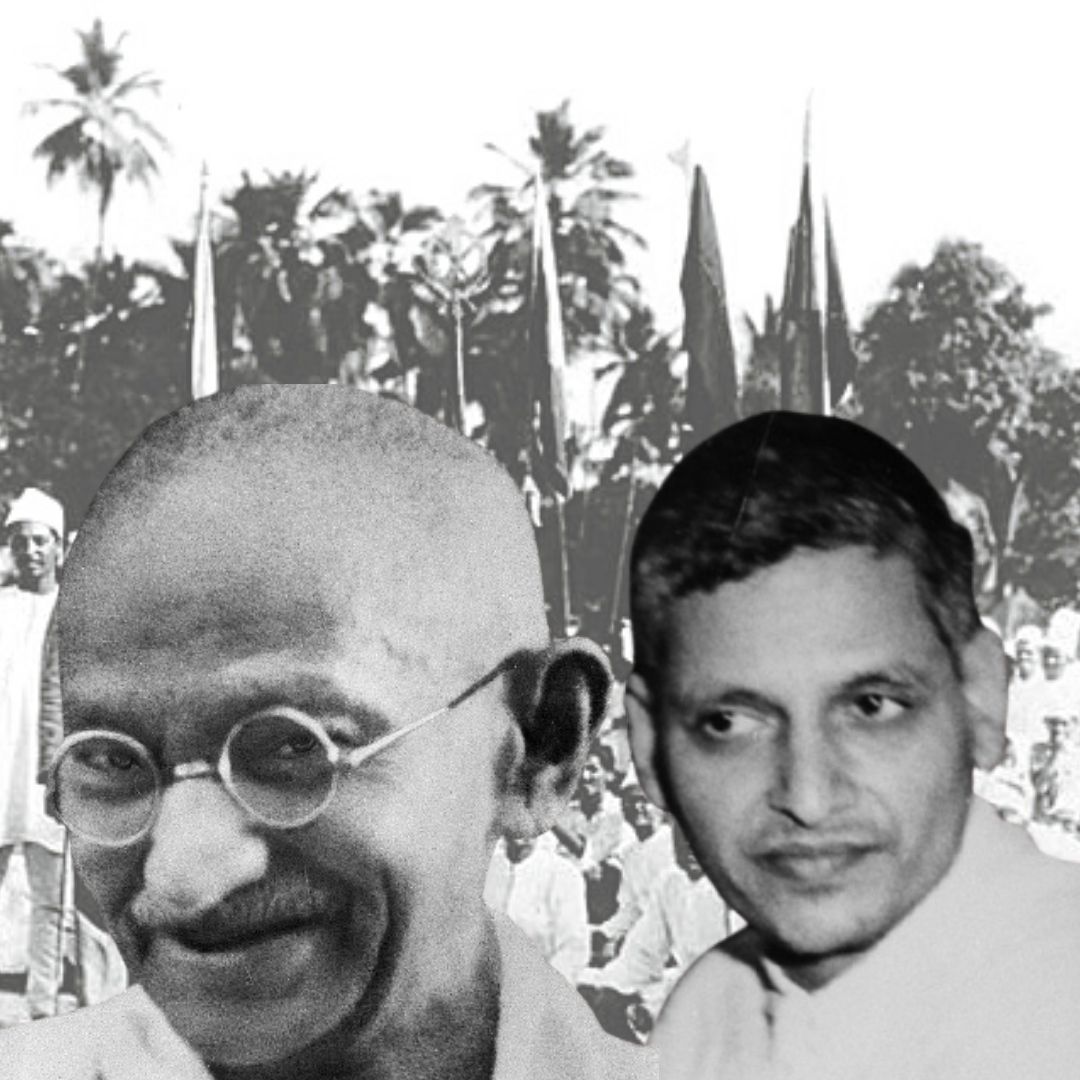
Image Credits: Wikimedia, Wikimedia, Wikimedia
How Mahatma Gandhi And Nathuram Godse Differed In Ideologies Around Freedom of Speech?
Writer: Akanksha Saxena
I am a budding journalist who loves to write stories that have the ability to connect with people.
India, 31 Jan 2022 9:22 AM GMT
Editor : Ankita Singh |
A literature lover who likes delving deeper into a wide range of societal issues and expresses her opinions about the same. Keeps looking for best-read recommendations while enjoying her coffee and tea.
Creatives : Akanksha Saxena
I am a budding journalist who loves to write stories that have the ability to connect with people.
Mahatma Gandhi's great-grandson, Tushar Gandhi, claimed that the Gandhian philosophy is declining as more people are steering towards believing Godse's ideologies, which is the root of the 'poison of hatred.'
January 30, 2022 marked 74 years since Mahatma Gandhi was assassinated in broad daylight in New Delhi. A prominent member of the Hindu Mahasabha, Nathuram Vinayak Godse, fired three shots before Gandhi proceeded to the dais at the capital's Birla House.
Over the years, the debate surrounding them has only grown exponentially. Several political leaders have been remarkably open about their support for Godse. Recently, the Hindu Mahasabha paid homage to him and co-accused Narayan Apte during a ceremony called 'Godse-Apte Smriti Diwas', where they honoured a godman, Kalicharan Maharaj, who made derogatory remarks about Mahatma Gandhi.
It is a proven fact that there has been a growing disdain towards the father of the nation. His great-grandson, Tushar Gandhi, said at an event that Godse's ideologies are on a rise that is responsible for the 'poison of hatred.'
Gandhi vs Godse- Freedom Of Speech
For Mahatma Gandhi, the idea of a country ruling over another was unacceptable. For him, denying liberty leads to 'virtual death.' "A real freedom is one which can be attained with self-efforts without aid from any corner. It is always essential because, without that, a nation or an individual cannot fully develop themselves," said his famous quote.
An integral part of Gandhi's fight for India's freedom was non-violence, and the only way to achieve the same was by practising 'Ahimsa' in every way possible. For him, the theory of liberty involved no arbitrary desire to stray away from the path. However, many did not agree with the Gandhian way during the freedom struggle. Throughout the fight against the British Raj, Mahatma Gandhi united everybody, irrespective of their castes and religion. Despite a common goal, many communities felt 'sidelined' as their interests were not fulfilled.
The fundamentalist organisation believed that Gandhi's ideologies steered the aspirations away from the Hindus and became extremely 'pro-Muslims'. Godse also thought that the infamous partition could have been prevented altogether.
Decades later, Gandhi was seen as a flawed leader by many. While many still stand by his views, several believe that non-violence was not the only way to attain freedom. However, openly worshipping Godse sets a wrong precedent for future generations.
Also Read: Shaheed Diwas: How India's Non-Violence Icon Met A Tragic End?
 All section
All section














